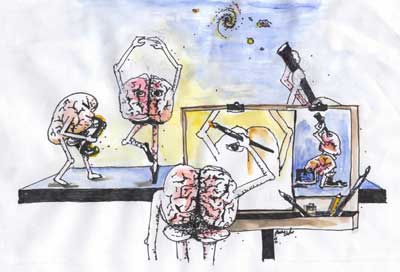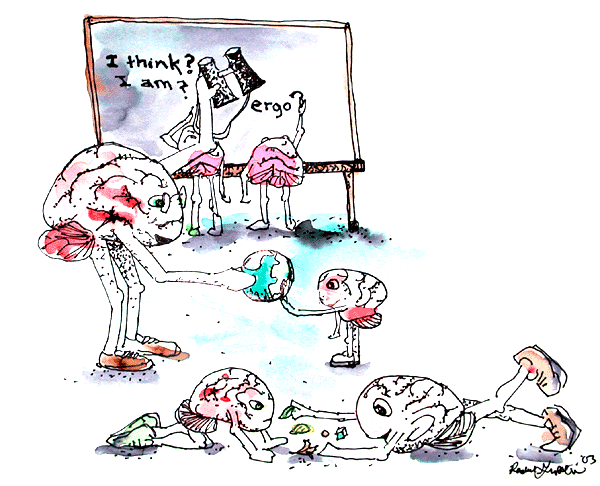| The Challenge: To move toward science seen as ...
- Primarily process rather than content knowledge
- Rigor without oppressiveness
- Concreteness without lifelessness
- Playfulness without meaninglessness
- Something that everyone can draw from and be empowered by
- Something to which everyone can contribute
- Engaged with rather than isolated from other spheres of human activity
|
Theory
Materials on Serendip
Revisiting Science in Culture: Science as Story Telling and Story Revision
See Science as Story Telling and Story Revision: A Conversation for an on-line discussion forum and additional essays, including
Science as Storytelling, by Barry Bickmore and David Grandy
Science as StoryTelling or Story Telling? A Conversation About Science Education ... and Science
Science IS Story: An Exchange Involving a Social Scientist, A Humanist, and a Scientist
Storytelling: Scientist's Perspective, John Seeley Brown, 2001
Education and Technology: Serendip's Experiences 1994-2004
The Two Cultures: A Conversation
With Friends Like These ... , by David Burns, 2005
This Isn't Just MY Problem, Friend: Some Thoughts on Science Education, Education, American Culture, and What to Do About It, by Paul Grobstein, 1991
Getting It Less Wrong: Some Thoughts on Introductory Science Teaching ..., by Paul Grobstein, 1993
Nurturing the Scientific Mind
in
School: Transdisciplinary Experiences 'Avant La Date', by Jan Visser, 2005
Abandoning the "War" Between Science and the Humanities: One Student's Experiences, Sarah Halter, 2006
Materials elsewhere on the web
Storied Theory, by Roald Hoffman, 2005
Life and/or the Bigger Picture, a student forum conversation in Biology 103, 2005
Biology 202 Evolving: Notes for a Case Study of Teaching and Learning at Bryn Mawr, 2005
Organizational Storytelling, Steve Denning
A Continuation of Paul Grobstein's Theory of Science as Story Telling and Story Revising: A Discussion of its Relevance to History, Toni Weller, 2006
|

